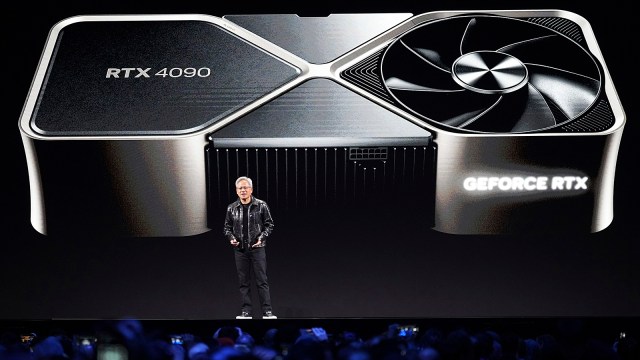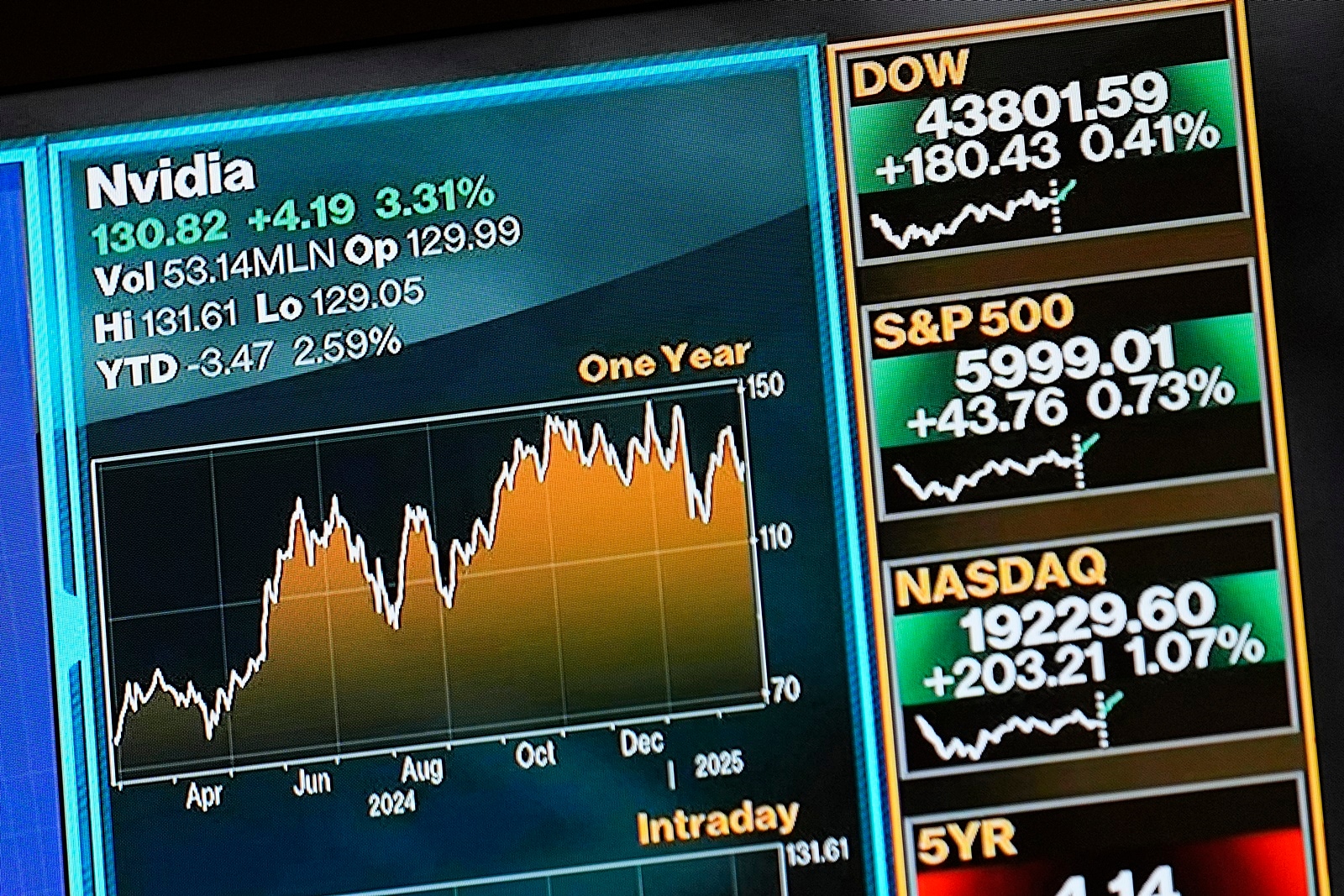Nvidia’s Q4 result: Blackwell chips propel record growth of nearly 80% amid AI boom
Nvidia Earning Report: For the three months ending January 26, Nvidia posted revenue of $39.3 billion, a 12 per cent increase from the previous quarter and a remarkable 78 per cent jump from the same period a year earlier.
 Nvidia founder and CEO Jensen Huang speaks during a Nvidia news conference. (Photo: AP)
Nvidia founder and CEO Jensen Huang speaks during a Nvidia news conference. (Photo: AP)Nvidia Q4 Earnings Report: Nvidia, the California-based technology giant, reported a significant surge in fourth-quarter profit and sales on Wednesday, driven by soaring demand for its new Blackwell chips, which are at the heart of the latest artificial intelligence (AI) systems. The company’s earnings sent its stock higher in after-hours trading, underscoring Nvidia’s continued dominance in the AI hardware space.
For the three months ending January 26, Nvidia posted revenue of $39.3 billion, a 12 per cent increase from the previous quarter and a remarkable 78 per cent jump from the same period a year earlier. Adjusted for one-time items, the company earned 89 cents per share, exceeding Wall Street expectations. Analysts surveyed by FactSet had forecast adjusted earnings of 85 cents per share on $38.1 billion in revenue.
In a statement accompanying the earnings release, Nvidia’s founder and CEO Jensen Huang highlighted the unprecedented demand for the company’s Blackwell architecture, which powers many of the world’s most advanced AI models. “Demand for Blackwell is amazing as reasoning AI adds another scaling law — increasing compute for training makes models smarter and increasing compute for long thinking makes the answer smarter,” Huang said.
Huang also noted that Nvidia has rapidly scaled up production of its Blackwell AI supercomputers, achieving billions of dollars in sales in the architecture’s first full quarter on the market. “AI is advancing at light speed as agentic AI and physical AI set the stage for the next wave of AI to revolutionize the largest industries,” Huang added.
A record-breaking quarter
Nvidia’s fourth-quarter earnings not only beat market expectations but also shattered previous records for the company. Net income for the quarter came in at $22.06 billion, comfortably surpassing analysts’ predictions of $19.57 billion. Data centre sales, which are a core part of Nvidia’s business, accounted for much of the growth, with revenue in this segment soaring 93 per cent year-over-year to $35.6 billion.
As Nvidia continues to ride the wave of AI demand, the company is projecting continued growth in the coming year. For the first quarter of fiscal 2026, Nvidia is forecasting revenue of approximately $43 billion, suggesting that its AI-driven momentum shows no sign of slowing down.
Nvidia’s dominant position in the data centre market coincides with broader developments in the AI infrastructure landscape. US President Donald Trump has recently promoted a $500 billion joint venture involving OpenAI, Oracle, and SoftBank, which aims to build infrastructure tied to AI advancements. Dubbed the Stargate project, the initiative is set to create data centres and energy generation systems critical to the future development of AI technologies. Nvidia, with its pivotal role in AI hardware, is a key partner in the venture.
 A screen displays financial news about Nvidia on the floor at the New York Stock Exchange on Wednesday. (Photo: AP)
A screen displays financial news about Nvidia on the floor at the New York Stock Exchange on Wednesday. (Photo: AP)
Blackwell’s record ramp-up
During an earnings call with investors, Nvidia Chief Financial Officer Colette Kress noted that Blackwell’s early success exceeded even the company’s optimistic forecasts. “We delivered $11 billion of Blackwell architecture revenue in the fourth quarter of fiscal 2025, the fastest product ramp in our company’s history,” Kress was quoted as saying by news agency Associated Press.
Kress highlighted that demand for Blackwell has been particularly strong among large cloud service providers, which represented about half of the company’s data centre revenue during the quarter. Nvidia’s technology is increasingly essential for the computational power needed to train and run advanced AI models.
Nvidia’s rapid ascent in the AI industry has been nothing short of extraordinary. The company is now valued at over $3 trillion, making it the second-largest firm on Wall Street, trailing only Apple. Just two years ago, Nvidia’s market value was below $600 billion, a testament to the explosive growth driven by AI. The company’s stock performance has also played a crucial role in lifting major indexes like the S&P 500, which has recently reached record highs, bolstered in part by Nvidia’s outsized gains.
Nvidia’s latest earnings report comes at a time of intensifying global competition in the AI space. Recently, Chinese company DeepSeek made headlines by announcing that it had developed a large language model (LLM) capable of rivalling US-based ChatGPT and other leading AI systems. What makes DeepSeek’s achievement notable is its reported efficiency in using Nvidia’s own chips to train the model on vast amounts of data.
The news briefly rattled investors, wiping $595 billion off Nvidia’s market value before the stock rebounded. However, Nvidia issued a statement applauding DeepSeek’s achievement, calling it “an excellent AI advancement” that uses “widely-available models and compute that is fully export control compliant.”
What lies ahead?
Huang expressed confidence in Nvidia’s future, noting that the company is at the centre of what he described as the “next wave” of AI innovations. According to Huang, the coming advancements will focus on three key areas: agentic AI for enterprises, physical AI for robotics, and sovereign AI as different regions around the world develop their own AI ecosystems.
“We’re in the centre of much of this development,” Huang told investors, signalling that Nvidia’s position as the leading AI chipmaker is unlikely to be challenged any time soon.
(With inputs from AP)
- 01
- 02
- 03
- 04
- 05































